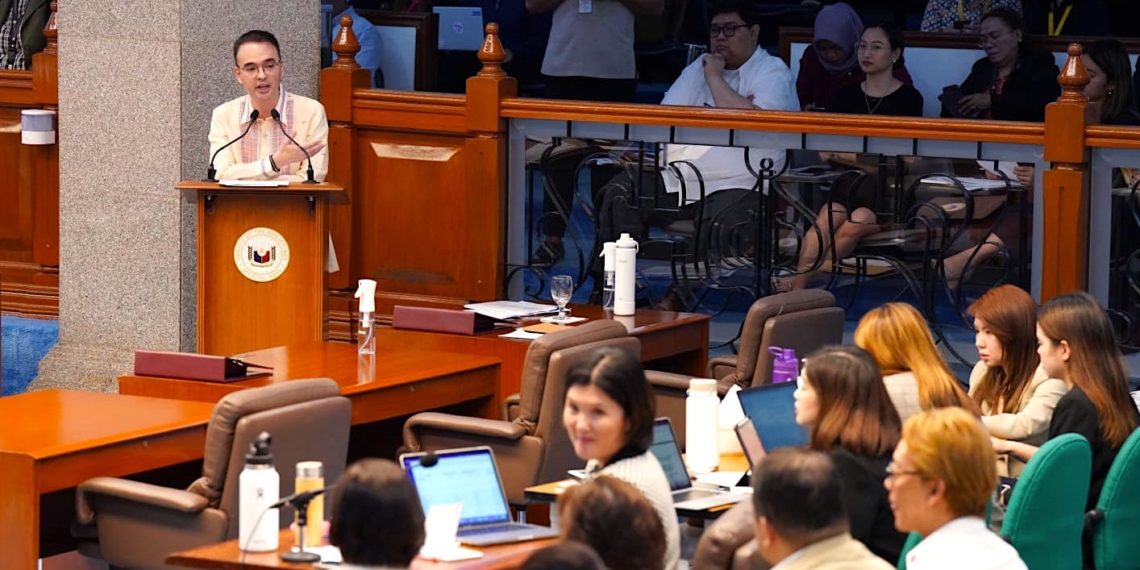Senator Alan Peter Cayetano on Thursday said it is much better to have a tweaked version of the country’s old curriculum than stick with K-12 and continue to experience a dismal quality of education.
“Do we want to have the form na K-12 tayo pero ganyan kababa ang quality [of education], or do we take the criticism na hindi tayo K-12 pero mataas naman ang quality? If you ask me, I’d rather not have K-12 pero higher quality,” Cayetano said during the plenary debate on the proposed 2024 budget of the Department of Education (DepEd).
The independent senator said in the first place, K-12 has not even been “proven to be better,” citing Cuba as a country with fewer school years but with “very good educational systems.”
Cayetano said the main culprit in the learning poverty in the Philippines is the decrease in school hours over the past years under K-12. He cited the latest World Bank report on the quality of education in the East Asia and the Pacific region which showed that nine out of 10 Filipino children cannot read and understand simple, age-appropriate reading material by age 10.
Upon Cayetano’s questioning, DepEd said more than 2,800 out of 47,000 schools nationwide do double, triple, or even quadruple shifting schedules. This means students only get to learn at school for a maximum of six hours a day, compared to eight hours under the old curriculum.
“For me, one thing that will return us to the right path is having enough time for the learners to actually learn,” he said.
Cayetano also said the lack of resources is hindering DepEd from fulfilling K-12’s promise of producing senior high school graduates who are either employable or better prepared for higher education.
He said the lack of resources was one of the reasons he was one of only two senators who opposed the approval of K-12 in 2013.
“I opposed that (K-12) saying mas gusto ko naka-Volkswagen tayo na hindi nasisiraan at maganda kaysa naka-Mercedes Benz na sira-sira at wala naman tayong pambili ng spare parts,” he said.
Cayetano said while most other countries implement K-12, it is important to study the matter more carefully and see if it is really applicable in the Philippines.
“(There are) all these international studies, but we have to look at what works for the Filipinos,” he said.






